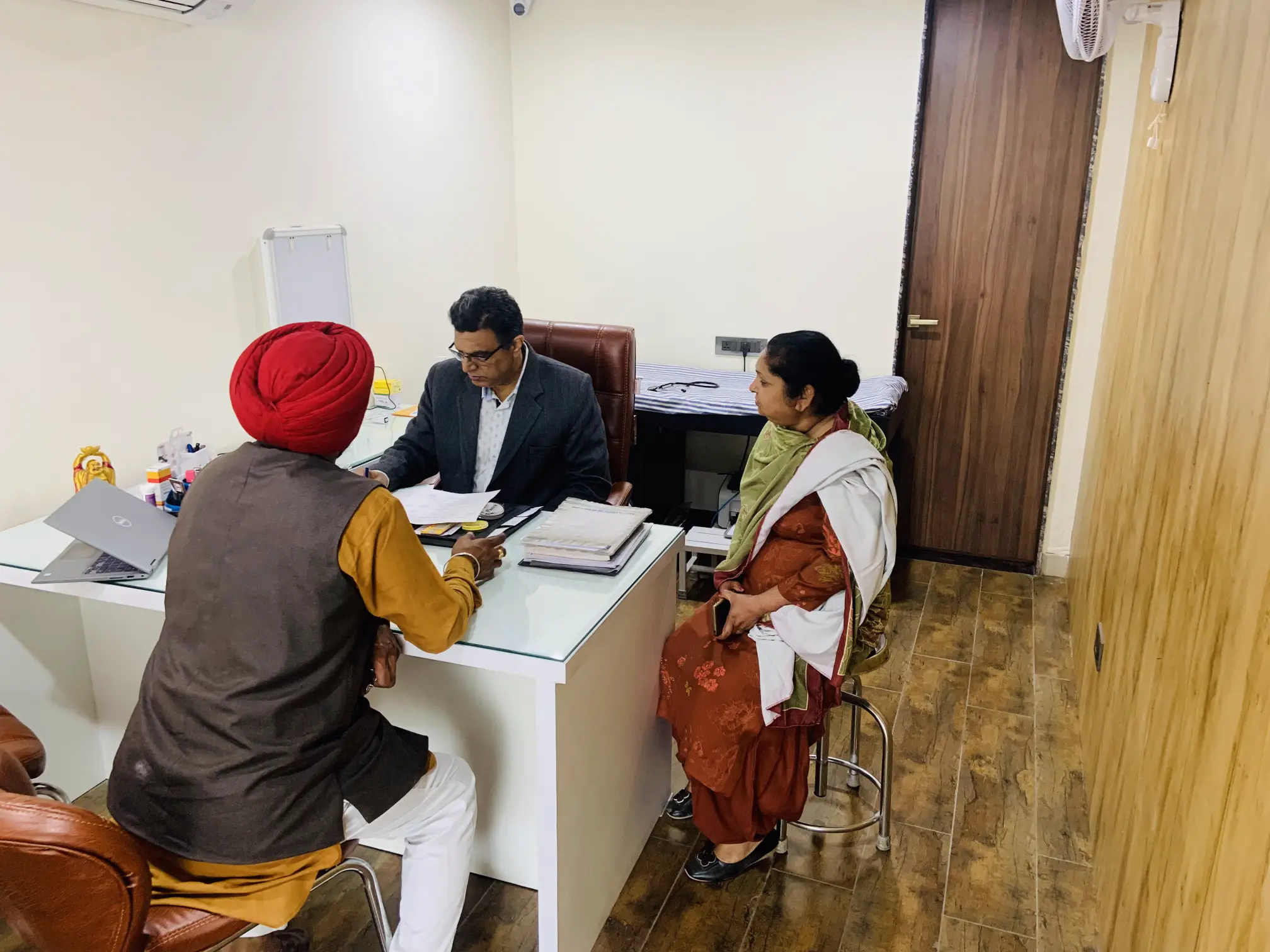General Surgery
As part of the Malhotra Hospital & Orthopaedic Centre, the department of general surgery aims to improve patient outcomes through superior surgical care offered by a multidisciplinary team of surgeons supported by advanced technological help.
Whether an emergency surgery or a planned process, a reliable team of surgeons accompanied by trained nurses and ancillary staff ensure accurate preoperative evaluation and postoperative management of patients. As a result of the team’s expertise, kidney stone, pile surgery, anal fistula surgery, and other procedures can be performed easily.

This department strives to shorten hospital stays and enhance the quality of life by using updated surgical techniques and integrating the latest innovations at the hospital
General Surgery Services
- Laparoscopic Cholecystectomy :
During laparoscopic cholecystectomy, the gallbladder is removed through minimally invasive surgery. Inflammation, pain, and infection caused by gallstones are relieved by the medication. A few small cuts are made during the surgery, and most patients are able to return to normal activities the following day. - Laparoscopic Appendicectomy :
An appendectomy is a type of surgery that removes the appendix. The appendix has to be removed to cure appendicitis. Untreated appendicitis can make you sick or even kill if it ruptures or bursts open. - Laparoscopic Hysterectomy :
The hysterectomy involves removing the uterus surgically. Upon undergoing surgery, you will no longer be able to become pregnant and will no longer be able to menstruate. There are several reasons why women undergo this surgery, including abnormal bleeding, uterine prolapse, fibroids, and cancer. According to your surgery type, recovery usually takes between four and six weeks. - Prostate Surgery :
The prostate gland is surgically removed as part of or as a whole during prostate surgery. It is located below the bladder in the male pelvis. From the bladder, it transports urine to the penis via the urethra.
Several conditions affect the prostate that can be treated using the process. Prostate cancer is most commonly treated with it. - Kidney Stone Surgery :
It is an aggregation of chemical substances in urine that causes kidney stones. Stones form when these substances reach a specific concentration level and crystallise.
Calcium combined with oxalate or phosphate is the most common type of stone.
There are many sizes of kidney stones; some are too small to feel in the urinary tract. Alternatively, they can be as large as golf balls.
The ureter dilates and stretches when the stone blocks urine flow, causing muscle spasms that cause immense gripping pain (renal colic). - Piles Surgery :
A piles surgery is when piles are removed or shrunk surgically. Hemorrhoids cause pain and difficulty passing stool and are swollen tissues in the anus and rectum.
The first line of treatment for piles isn’t surgery. Changes in lifestyle and medication are recommended, and surgery is considered if the condition worsens. - Hernia Surgery :
A hernia happens when an organ protrudes through a hole in the muscle or tissue holding it in place. A hernia is a common health condition in India, affecting 10 to 12 percent of the population. Many factors, including congenital muscle weakness and aging, cause this common ailment. The most common symptom of a hernia is great discomfort, and surgery is almost always needed. - Anal Fistula Surgery :
This surgery removes anal fistulas and is an effective way to treat anal fistulas. A tunnel, called an anal fistula, develops between the anus and the skin behind it. Abscesses form, and pus drains from the fistula, resulting in spots. This surgery reduces the symptoms associated with anal fistulas, such as pain, anal abscesses, swelling around the anus, bleeding, etc.
